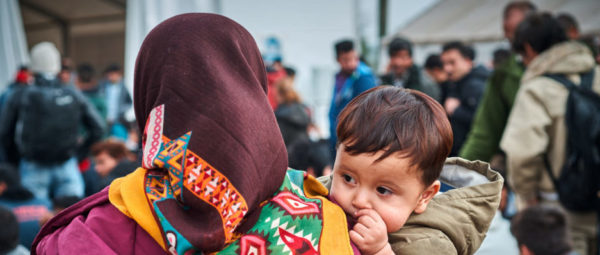Sustainability and the migrant experience in the COVID-19 crisis
 This Project MISTY blog, by Neil Adger, Emily Boyd, Ed Carr, Sonja Fransen, Dominique Jolivet, Anita Fabos, Maria Franco Gavonel and Caroline Zickgraf, explores the intersections between migration, urbanisation and sustainability as the impacts of the COVID-19 crisis deepen. This blog has been reposted from the Transformations to Sustainability website.
This Project MISTY blog, by Neil Adger, Emily Boyd, Ed Carr, Sonja Fransen, Dominique Jolivet, Anita Fabos, Maria Franco Gavonel and Caroline Zickgraf, explores the intersections between migration, urbanisation and sustainability as the impacts of the COVID-19 crisis deepen. This blog has been reposted from the Transformations to Sustainability website.
The COVID-19 pandemic is transforming the social world. It is, for example, producing substantial changes in the practices and experiences of migration and mobility. The significant opportunities and risks for people who move, and how such individual transformations affect the sustainability of societies, are being radically altered.
Research from the MISTY project shows how, when individuals move, they transform their lives and life chances, often in ways that contribute to the greater good and even to sustainability. Migrating from one place to another is a common means of personal transformation. Yet at the aggregate level, migration is intertwined with globalisation and has been an engine for urbanisation over the past few decades.
The COVID-19 pandemic is throwing up stark dilemmas for mobility and migration everywhere. There are clearly a variety of migrant situations and experiences, ranging from low-income migrants in city slums through to international hyper-mobile highly paid workers. Refugee camps, internally displaced people, and asylum seekers are themselves in highly risky situations.
The COVID-19 crisis and societal response has already highlighted the profound insecurity experienced by low-income migrants in particular. Perhaps the most visible example is given by the thousands of internal migrants in India, who having lost their jobs with the lockdown, try to return to their villages in conditions considered the antithesis of social distancing. Many migrant populations experience marginalization spatially and socially in the places they move to, especially in low-income settings. Socially excluded migrant populations experience negative mental health outcomes exacerbated by their limited labour rights, social stigma and inequality.
Yet the crisis also throws up alterative forces. A key question, for example, is whether the new places where migrants live enable coping and thriving through community action. Some initiatives such as the food distribution initiated by undocumented migrants in Barcelona to relieve hunger and food insecurity, already point in that direction.
What the COVID-19 pandemic means in the long term we cannot say. The idea of sustainability itself may be transformed, to focus on individual and collective elements of wellbeing, flourishing and community. The crisis inevitably changes the view of mobility and migration as part of that transformative story.
Our MISTY research can point to what we know is happening right now: economic limitations, reduced mobility, communities rapidly returning to rural areas or other countries, and the rapid, compounding effects of inequality. Social science can speculate on the post-COVID future, but it will very likely be something very different to what we know now. Social science can examine lessons learned from the past and contribute nuanced perspectives on how transformations occur. But the research process also needs to create space for an inclusive set of future imaginations on migration for sustainability.